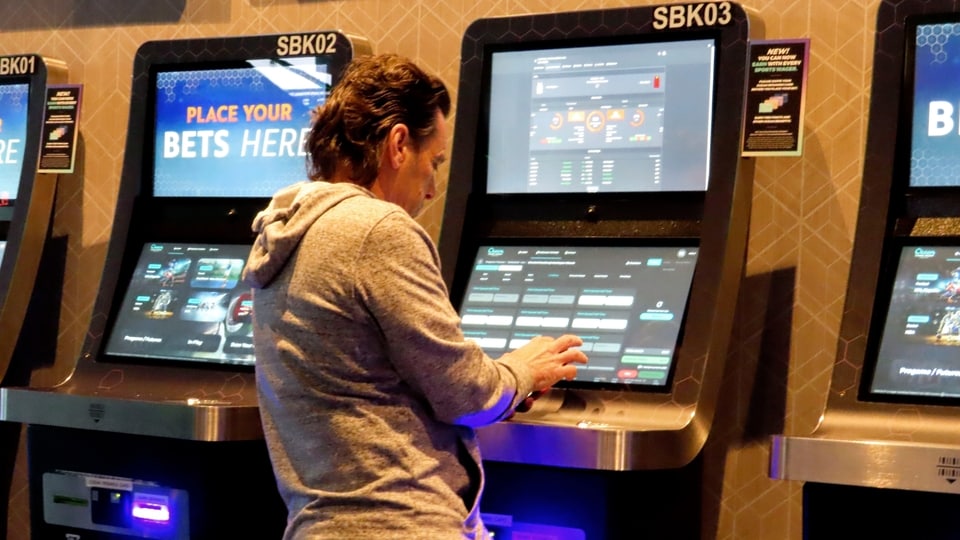Match Fixing Has Existed for Centuries. Gambling Apps Are Making It Worse
Match fixing has been around since the Olympics in ancient Greece. Online sports betting is just making it more common.

Once upon a time, snooker — a cousin of pool and billiards with roots in the British Raj — was a boutique, almost backwater, pastime. No longer. Its popularity has soared globally, particularly in China, and it may be included as a sport in the 2024 Olympics.
That means a lot of gamblers bet on snooker. It also means that match fixing is in the mix. Ten elite Chinese players are currently being investigated for throwing games to help somebody cash in some presumably large bets. So here we are: A digital boom in sports gambling — accompanied by bigger incentives for scamsters and crooks to corrupt games — means even something as quaint as snooker can be corrupted.
And it's everywhere. The fix has been in on handball matches. Triathlons and biathlons are worried about fixes. Organized crime has targeted kabaddi matches in India. Lots of betting now whirls around table tennis, volleyball and cricket. Tennis — tennis! — has its woes. Wimbledon and other high-profile tournaments have been scarred by investigations of match fixing. Fixers have even tried to get to the top of the sport. Superstar Novak Djokovic said fixers unsuccessfully approached him in the past.
Match fixing exists because gambling exists, in much the same way that insider trading exists because the stock market exists. It's where the money is.
While match fixing has always been around, it's now more frequent and ubiquitous, analysts say, because the advent of online gambling and mobile devices allow almost anyone, anywhere, to bet. Odds and wagers are offered on a global buffet of different sports — and all of them are potentially corruptible.
Match fixing isn't just one thing. It's an umbrella term that the sports world, law enforcement, gambling industry sleuths and others use to describe an array of bribes, manipulated scores, intentional errors, bogus penalties, and other crimes and misdeeds deployed to rig the outcome of games.
To understand how this threatens the integrity of professional and amateur sports — and fans' relationships with their favorite teams — I spent time over the last year speaking to various gumshoes who track match fixing. That included a visit in London with analysts at Sportradar AG, a Swiss firm that specializes in hunting down fixers worldwide.
Sportradar let me watch its sleuths in action, and you can share that experience by listening to an episode about match fixing published today as part of Crash Course, a new Bloomberg Opinion podcast about business, political and social disruption — and what we can learn from those collisions.
This is one of three episodes about the sports betting boom, and its impact on gambling companies, leagues, athletes, fans and communities. Listeners can also sit with me as I watch a hardcore sports gambler in Chicago ply his trade, and join me for a visit with a Native American tribal nation that has been riding gambling's roller coaster for decades.
Gambling's main event in the US, the Super Bowl, arrives this Sunday. The American Gaming Association estimated last year that more than 31 million Americans bet about $7.6 billion on the Super Bowl; there's no reason to believe that wagering this year won't be just as robust.
Soccer remains the motherlode of match fixing worldwide, though. So many matches have been fixed that I can't list them all here. But consider this: In 2018, Albania's leading soccer team was banned from competition for a decade after being accused of intentionally losing games they were favored to win. The entire team. Officials investigating the scandal received death threats.
The World Cup attracts vastly larger amounts of wagering than the Super Bowl, perhaps as much as $160 billion in recent years. There is so much legitimate money to be made from the World Cup that it would be difficult for match-fixers to pierce its armor. Still, qualifying matches for the World Cup have been tainted by suspected fixing. FIFA, which oversees the World Cup, was very open about taking added measures to police match fixing at last year's championship.
Andreas Krannich, who oversees a Sportradar team of former intelligence operatives, police detectives, journalists and computer geeks tracking 500,000 sporting matches a year, said it's inevitable that match fixing will proliferate in the US as more states legalize sports betting, mirroring what has already happened elsewhere. Sportradar identified 903 suspicious matches across 10 sports in 76 countries in 2021, and it says that is just the tip of the iceberg.
“This is part of the globalization and digitalization of our world,” Krannich said. “We are living now in a digital environment where there are no limitations anymore.”
Is there a chance that the Super Bowl could be fixed? It's highly unlikely, and largely because athletes, coaches and referees in the National Football League are well paid. There's little financial incentive to take bribes and toss games. The NFL itself is a cash cow that has its own self-interest at stake with match fixing, though it has wholeheartedly embraced the sports betting boom, a partnership it once shunned.
Other professional sports in the US enjoy similar financial insulation. Still, there's a rich history of match fixing in the US, from the 1919 Black Sox scandal through myriad boxing matches and into the present. Gamblers and criminals have been trying to rig games elsewhere since the Olympics began in ancient Greece, and match-fixing threats now touch a dizzying lineup of different sports.
While there have been recent troubles in such US professional sports as hockey and basketball, less high-profile and less well-heeled amateur leagues may end up fostering more match-fixing scandals.
Declan Hill, an author who has written extensively about match fixing, said US colleges and the National Collegiate Athletic Association, populated by student-athletes who aren't properly compensated, remain ripe targets for corruption as the sports gambling boom accelerates.
“If you needed to design a league that would incentivize corruption, it would be very difficult not to do better than the NCAA,” he said. “They don't get paid, a few of them get their image rights, some of them get scholarships, but those scholarships are, in most cases, instantly voided if they get injured. This is a recipe for disaster.”
For its part, the NCAA clearly recognizes the problem. “Sports wagering has the potential to undermine the integrity of sports contests and jeopardizes the well-being of student-athletes and the intercollegiate athletics community,” it notes on the organization's website. “Sports competition should be appreciated for the inherent benefits related to participation of student-athletes, coaches and institutions in fair contests, not the amount of money wagered on the outcome of the competition.”
The NCAA prohibits student-athletes from gambling and says it closely monitors potential problems. But as more colleges forge lucrative partnerships with gambling companies and bring online wagering on-campus, some of this messaging may be a wee bit confusing for students.
When the Supreme Court deregulated sports gambling in the US in 2018, igniting the recent betting boom, the Federal Bureau of Investigation was alarmed enough that it created a new unit dedicated to unearthing corruption in sports. But the agency said it believes its work essentially involves stemming the tide and that match fixing will never be eradicated. Greed and scams will always fuel its survival.
And for the fixers orchestrating the scams, it can be a good living. Sportradar estimates, conservatively, that match-fixers hauled in profits of about $177 million in 2021. Maybe bank robbers in America are in the wrong business: They only grab a fraction of that amount annually.
Catch all the Latest Tech News, Mobile News, Laptop News, Gaming news, Wearables News , How To News, also keep up with us on Whatsapp channel,Twitter, Facebook, Google News, and Instagram. For our latest videos, subscribe to our YouTube channel.

























